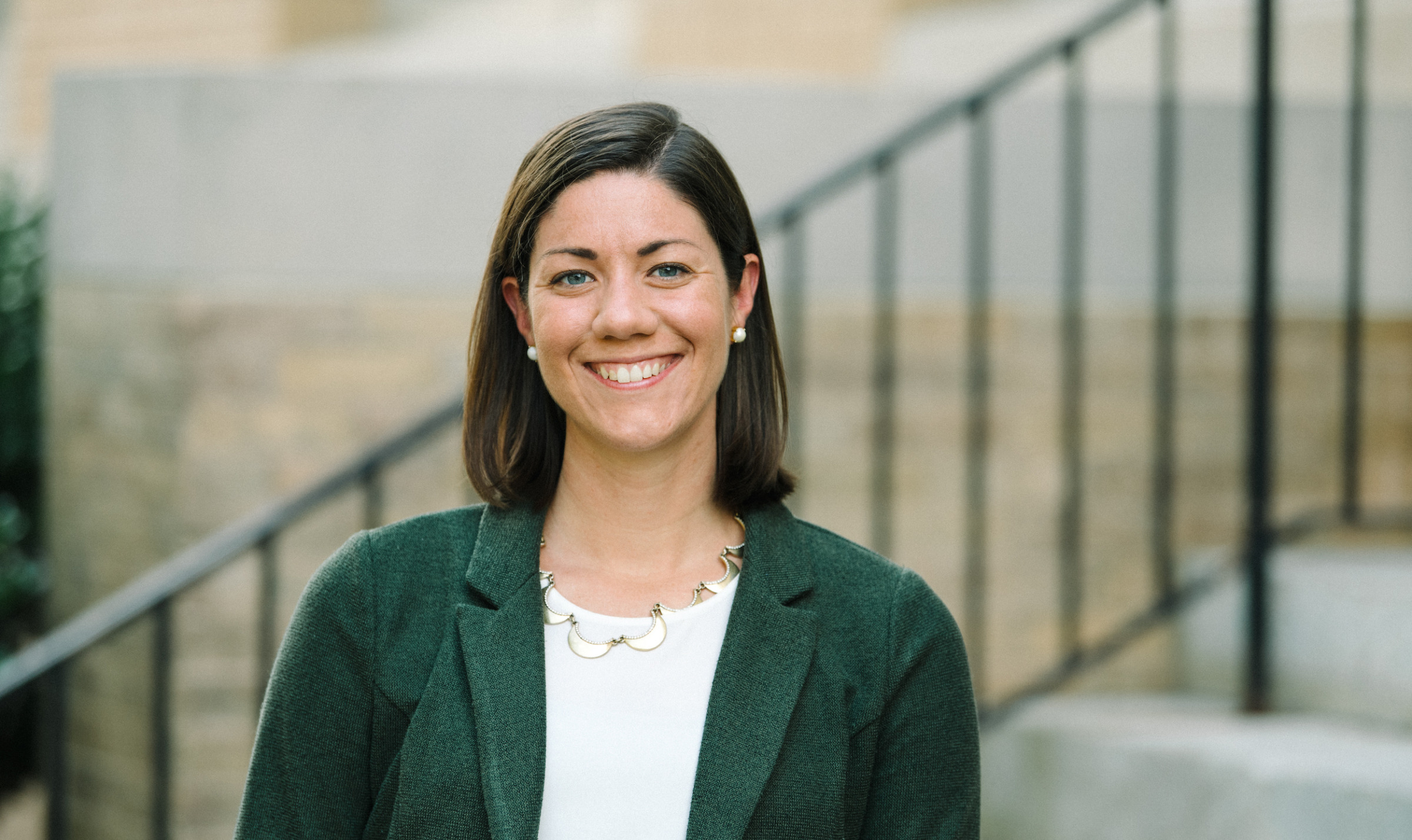Kathryn Leech, Ph.D., an assistant professor at the UNC School of Education, was named a recipient of a National Science Foundation (NSF) CAREER Award, which will support her research on the role of picture books in promoting parent-child scientific conversation and learning.
The CAREER Award, part of the NSF’s Faculty Early Career Development Program, is a prestigious grant offered to support entry-career faculty members who have the potential to serve as academic role models in research and education.
“Dr. Leech is one of the School’s innovative researchers driving important conversations around literacy,” said Jill Hamm, associate dean for research and faculty development at the UNC School of Education. “This CAREER Award moves her work into new territory that will help ensure young children have a strong foundation in science and scientific ideas through early literacy.”
With the $868,000 award, Leech, who specializes in children’s language and literacy development during early childhood, will focus on highlighting early scientific learning that optimizes parent-child interactions as a means of establishing a foundational understanding of learning through using scientific process language in science books and related conversations.
“Early childhood represents an important period for laying the foundation of scientific curiosity and inquiry.” Leech said. “Through this grant, I envision making contributions to early science education by leveraging these natural interactions with parents even before children enter formal school.”
This CAREER-funded work is structured around three research objectives that combine natural language processing (NLP), direct observations of parent-child reading interactions, and community engagement methodologies. Leech’s research objectives aim to:
- Characterize how scientific language is integrated into existing educational materials, using NLP to quantify references to scientific processes (e.g., causal relationships, explanations, predictions) within a large corpus of children’s science books;
- Examine how variations in science process language books affect scientific conversations and children’s learning through a series of controlled experiments; and
- Pilot a study leverages findings from the aforementioned objectives to develop a science picture book based on rural caregivers’ feedback and test its effectiveness in enhancing parent-child scientific conversation.
The project’s findings have the potential to aide in the development of a multi-level theory of factors that influence early science engagement (e.g., parent-child interactions, features of books, science capital) that researchers can draw upon in future interventions aimed at fostering children’s scientific learning and engagement.
Leech’s work will be conducted with rural families, who are traditionally underrepresented in research and often limited in accessing scientific resources. It will be complemented with an integrative education plan to train undergraduate research interns in early science learning and family engagement, in partnership with a school district in rural North Carolina.
“Through this grant, we aim to cultivate a unique model of research-focused internships for Human Development and Family Science (HDFS) undergraduate students,” Leech said. “These internships will take place within the Carolina Community Academy (CCA), offering invaluable training in community engagement strategies related to rural families’ science participation. I am particularly excited about the prospect of HDFS research interns bringing this dedication into their research experiences.”
“This grant presents an opportunity for undergraduate students to engage directly in research activities with tangible benefits for rural families and children in North Carolina,” Leech said. “I hope our findings will inform the development of evidence-based interventions and programs that promote early scientific learning and foster sustained interest and engagement in science.
